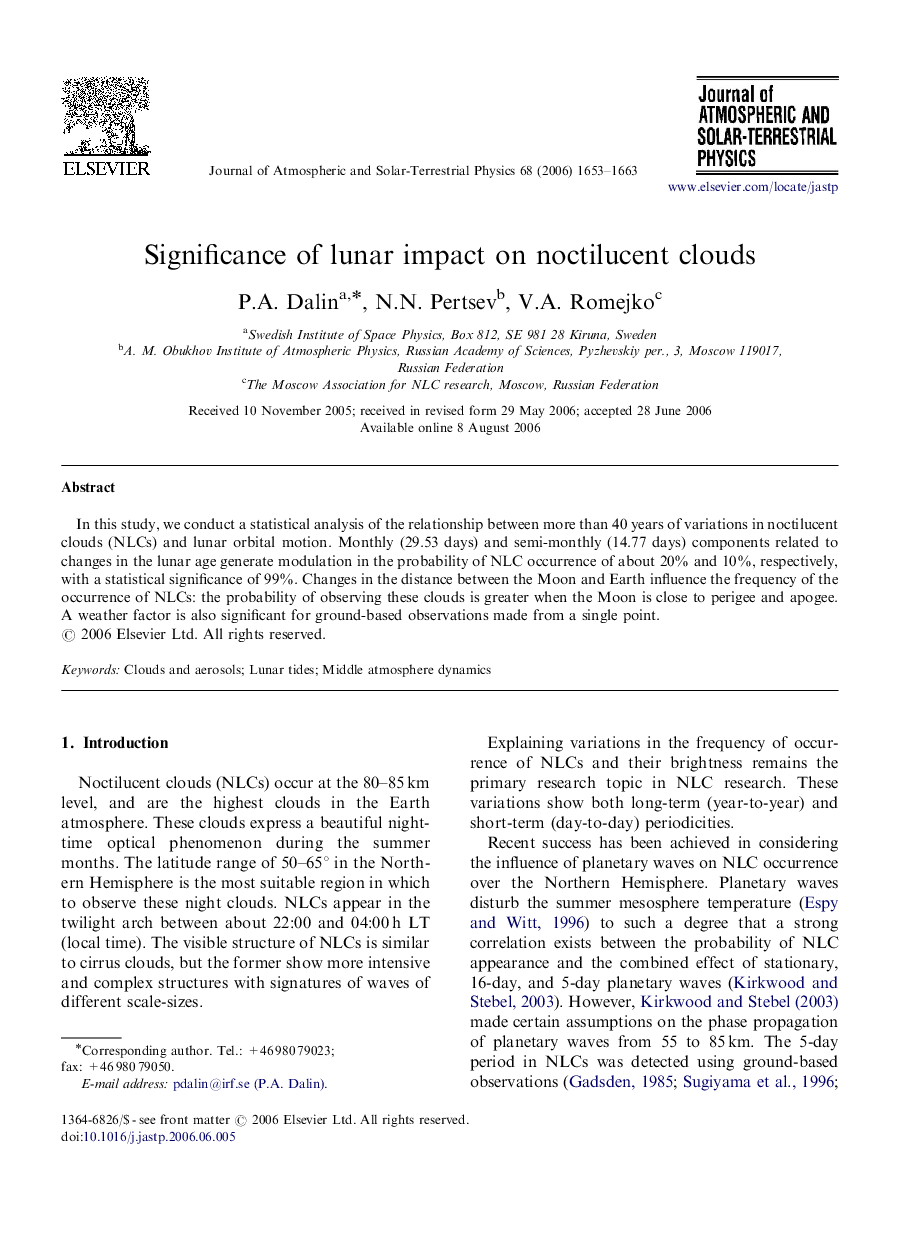| Article ID | Journal | Published Year | Pages | File Type |
|---|---|---|---|---|
| 1778257 | Journal of Atmospheric and Solar-Terrestrial Physics | 2006 | 11 Pages |
Abstract
In this study, we conduct a statistical analysis of the relationship between more than 40 years of variations in noctilucent clouds (NLCs) and lunar orbital motion. Monthly (29.53 days) and semi-monthly (14.77 days) components related to changes in the lunar age generate modulation in the probability of NLC occurrence of about 20% and 10%, respectively, with a statistical significance of 99%. Changes in the distance between the Moon and Earth influence the frequency of the occurrence of NLCs: the probability of observing these clouds is greater when the Moon is close to perigee and apogee. A weather factor is also significant for ground-based observations made from a single point.
Keywords
Related Topics
Physical Sciences and Engineering
Earth and Planetary Sciences
Geophysics
Authors
P.A. Dalin, N.N. Pertsev, V.A. Romejko,
